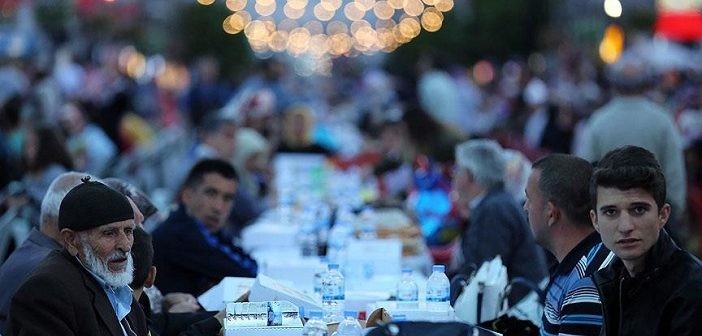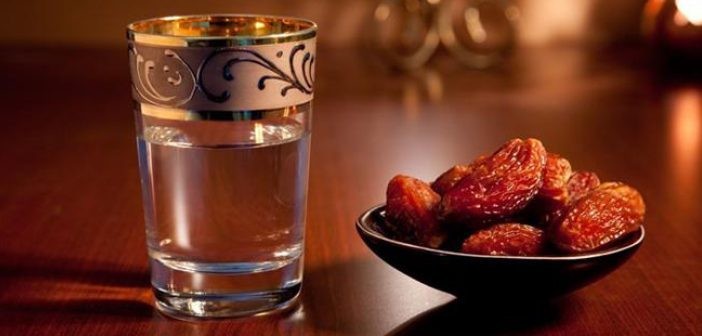
The Ifk Incident or the Slander
What is ifk? What happaned in ifk incident?
It was again during the return from the Muraysi Battle, when Aisha -Allah be well-pleased with her-,[1] the Prophet’s -upon him blessings and peace- wife of purity and innocence, had slightly moved away from the army to see to a need. By the time she returned, however, the army had long departed. Because the hijab command had been revealed by then, Aisha -Allah be well-pleased with her-, the mother of Believers, had begun to travel in a hawdaj placed on the saddle of a camel. Thus, when the army did make a move, the Believers had naturally assumed Aisha -Allah be well-pleased with her- was still inside the hawdaj.
Instead of pursuing the army at the risk of getting lost, Aisha -Allah be well-pleased with her- preferred to wait where she was. While waiting, she dosed off. Then, she was noticed by Safwan ibn Muattal -Allah be well-pleased with him-, who had the duty of gathering those who remained behind from the army. To make his presence felt to Aisha -Allah be well-pleased with him- who was still asleep, he recited:
“To Allah We belong, and to Him is our return…” (al-Baqara, 156) Aisha -Allah be well-pleased with her- woke to the sound. Without even an uttering a single word, Safwan -Allah be well-pleased with him- had the camel crouch and Aisha -Allah be well-pleased with her- mounted the camel. They caught up with the rest of the Believers at noon. That was it. But the hypocrites, as if they now had a perfect opportunity to give vent to their malice, had another thing on their minds. They fabricated an ugly slander.
“Neither Aisha has let herself go from the man, nor the man from Aisha”, they said. Abdullah ibn Ubayy even went further in his mockery, saying to the Believers, “There is the wife of your Prophet…she has spent the night with another man!”
The gossip soon had the entire army in its grip. Abu Bakr -Allah be well-pleased with him- began trembling with inexpressible pain the moment he heard it. “By Allah”, he lamented, “not even during the days of Ignorance did we ever be on the end of such slander!”
Safwan -Allah be well-pleased with him-, a praiseworthy Companion about whom the Blessed Prophet -upon him blessings and peace- had said, “I know of naught but good regarding him”, had resigned to a deep sorrow.
As for the Blessed Prophet -upon him blessings and peace-, no doubt it was his heart where the most scorching flame of grief had spread. For a while, he took to remaining indoors and to a certain extent remained distant from people. He also had a small investigation carried out on the matter. There was not even a tiny proof that could suggest Aisha -Allah be well-pleased with her- was guilty. But the mouths of the hypocrites would just not shut.
Aisha -Allah be well-pleased with her- was the last to hear of the rumor. Overcome with unbearable grief as one would expect, she nonetheless gathered her composure to the best she could, and after gaining permission from the Blessed Prophet -upon him blessings and peace-, went to her father’s house to see what it was all about. Once given the details of what she was accused with, she virtually melted, withering like an autumn leaf.
The Blessed Prophet -upon him blessings and peace- wanted to have a word with Aisha -Allah be well-pleased with her-. So he went to Abu Bakr’s -Allah be well-pleased with him- house.
“I have been hearing some things. If you are innocent, Allah will clear your name!”
Perceiving a slight air of doubt in the words of the Blessed Prophet, the delicate and sensitive Aisha -Allah be well-pleased with her-, looked appealingly to her parents; but they preferred to remain quiet. She then, behind teary eyes, said the following heartfelt words to the Prophet of Allah -upon him blessings and peace- :
“By Allah, I am almost certain that you, too, have just about believed the things you have heard. Now, if I was to tell you of my innocence –and indeed Allah knows I am- you might not believe me. Yet, if I was to tell you the opposite, you might. But Allah knows I am innocent…I will therefore wait for His aid against all that has been said…”
With the rumors still rampant, the following conversation took place between Abu Ayyub al-Ansari -Allah be well-pleased with him- and his wife Umm Ayyub - Allah be well-pleased with her-.
“Have you heard what people have been saying about Aisha?” Umm Ayyub asked her husband.
“Yes, I have, and they are nothing but fabricated lies”, replied Abu Ayyub. “Would you ever do something like that?”
“No way, I could never commit an evil of the kind”, replied Umm Ayyub, whereupon her husband said, “Then know that Aisha is much more righteous than you to do something like that!” (Ibn Hisham, III, 347; Waqidi, II, 434)
Only Revelation could now settle the matter; and it was not very long before the Almighty put an end to the rumors. It became obvious that the words were nothing but the slander of hypocrites. As well as absolving Aisha -Allah be well-pleased with her- of all guilt, the Divine Pronouncements revealed in relation were at the same time flinging these unfounded lies back in the faces of these hypocrites, informing them of an impending punishment, as well as warning the ignorants who went on about the unfounded claim:
“Surely they who concocted the lie are a party from among you. Do not regard it an evil to you; nay, it is good for you. Every man of them shall have what he has earned of sin; and (as for) him who took upon himself the main part thereof, he shall have a grievous chastisement.
Why did not the believing men and the believing women, when you heard it, think well of their own people, and say: This is an evident falsehood? Why did they not bring four witnesses of it? But as they have not brought witnesses they are liars before Allah. And were it not for Allah's grace upon you and His mercy in this world and the hereafter, a grievous chastisement would certainly have touched you on account of the discourse which you entered into. When you received it with your tongues and spoke with your mouths what you had no knowledge of, and you deemed it an easy matter while with Allah it was grievous.
And why did you not, when you heard it, say: It does not beseem us that we should talk of it; glory be to Thee! this is a great slander?
Allah admonishes you that you should not return to the like of it ever again if you are believers. And Allah makes clear to you the communications; and Allah is Knowing, Wise.
Surely (as for) those who love that scandal should circulate respecting those who believe, they shall have a grievous chastisement in this world and the hereafter; and Allah knows, while you do not know. And were it not for Allah's grace on you and His mercy, and that Allah is Compassionate, Merciful.
O you who believe! do not follow the footsteps of the Shaitan, and whoever follows the footsteps of the Shaitan, then surely he bids the doing of indecency and evil; and were it not for Allah's grace upon you and His mercy, not one of you would have ever been pure, but Allah purifies whom He pleases; and Allah is Hearing, Knowing.” (an-Nur, 11-21)
Aisha -Allah be well-pleased with her- was the first person whom the Blessed Prophet -upon him blessings and peace- informed of the superb news of the Revelation.
“Glad tidings, Aisha”, he said cheerfully, “Allah has acquitted you!”
After sending her praises and thanks to the Almighty, Aisha -Allah be well-pleased with her- responded by saying, “I would never have thought a Revelation would take into regard a helpless servant like me. All I had anticipated was an inspiration in the Prophet’s heart that would have proven my innocence!”
To her father Abu Bakr -Allah be well-pleased with him-, who kissed his daughter on the forehead and advised her to return to her husband, she remarked, rather hurt, “I will not thank anyone but Allah; for He made known my innocence!”
The Noble Messenger -upon him blessings and peace- thereupon smiled. A distress that lasted an entire month had now ended, thanks to the grace and compassion of Allah, glory unto Him. (Bukhari, Shahadat, 15, 30; Jihad, 64; Maghazi, 11, 34; Muslim, Tawba, 56; Ahmad, VI, 60, 195)
The woman who had become a victim of the atrocious slander was the wife of the Prophet of Allah -upon him blessings and peace-, the mother of Believers, the daughter of the Prophet’s -upon him blessings and peace- best friend, who was moreover among the most chaste women of the ummah. Just this ordeal suffices to indicate the forbearing power prophets have in the face of tribulations. It, at the same time, provides a comforting consolance to all the victims of slander to come until the Final Hour.
Now, despite the indisputable fact that the Holy Quran absolves the honorable Aisha -Allah be well-pleased with her- from all guilt, in no uncertain manner, by describing the accusation as ‘an evident falsehood’ and ‘a great slander’, what else is there to be said to the ignorant who continue to level accusations at her for later taking part in the Jamal Incident?
Those found guilty of fabricating the slander were punished for accusing an honorable woman of adultery. The slanderers were each flogged eighty times with a cane.[2]
According to Ibn Abbas -Allah be well-pleased with him-, there have only been four people in history to have been exonerated by Allah, glory unto Him: Yusuf -upon him peace- through the word of a witness from among the friends of the woman who had accused him,[3] Musa -upon him peace- from the rumors of the Jews,[4] the dignified Maryam by making her newborn talk[5] and Aisha -Allah be well-pleased with her- by those glorious ayah of the Holy Quran bound to be recited until the Final Hour. Never has there been seen an acquittal of similar eloquence revealed by the Almighty that points to the sublime rank of His Messenger. (Zamakhshari, IV, 121)
The delay of Revelation at a time of such dire need was to emphasize the fact that the Prophet -upon him blessings and peace-, as well as being the Messenger of Allah, was after all a human being who therefore exercised no command over the coming of Revelation. It thereby served to test the sincerity of the Believers.
Abu Bakr -Allah be well-pleased with him- used to lend frequent aid to a poor man called Mistah. Seeing Mistah, too, was among the slanderers during the incident, he vowed never again to help him or his family. Once he stopped his aid, Mistah and his family became really deprived, upon which the Almighty revealed:
“And let not those of you who possess grace and abundance swear against giving to the near of kin and the poor and those who have fled in Allah's way, and they should pardon and turn away. Do you not love that Allah should forgive you? And Allah is Forgiving, Merciful.” (an-Nur, 22)
“And make not Allah's (name) an excuse in your oaths against doing good, or acting rightly, or making peace between persons; for Allah is One Who heareth and knoweth all things.” (al-Baqara, 224)
The above ayat yield concrete evidences attesting to the mercy Allah, glory unto Him, has for his servants. Alternately, they provide a target to enhance the qualities of the virtuous.
“Of course, I would want Allah to forgive me”, commented Abu Bakr -Allah be well-pleased with him- immediately upon hearing the Revelation. Then paying the compensation (kaffarah) of his oath, he continued giving the charity like before. (Bukhari, Maghazi, 34; Muslim, Tawba, 56; Tabari, Tafsir, II, 546)
Hence, Abu Bakr -Allah be well-pleased with him- did not withhold his charity even from a person who had slandered her daughter, which goes to show how great a man of virtue the illustrious Companion was.
[1] Prior to each battle, the Blessed Prophet -upon him blessings and peace- used to draw lots between his wives take one of them along. This time it was Aisha -Allah be well-pleased with her-.[2] Ahmad, VI, 35.
[3] See, Yusuf, 26-29.[4] See, al-Ahzab, 69.[5] See, Maryam, 29-33.











